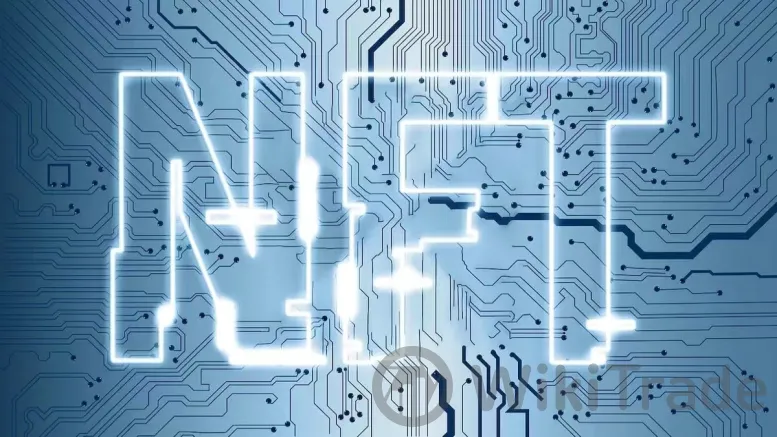Most Expensive NFT Art Monkey
Abstract: In the world of digital art, one piece has stood out: Bored Ape Yacht Club #8817, a pixelated ape with gold fur, a party hat, and a spinner hat. This NFT sold for a staggering $3.4 million in October 2021, setting the record for the most expensive NFT monkey art ever sold. This sale highlights the impact of NFTs on digital art and the growing interest of collectors in these unique digital assets.
Overview of Monkey Series NFT Artwork
Origin and Evolution
Monkey-themed NFTs originated from digital experimentation, where artists and technologists explored the artistic potential of blockchain technology. The “Bored Ape Yacht Club” (BAYC) emerged as an iconic collection, featuring uniquely generated cartoon apes, each minted as an NFT. This concept quickly gained popularity and paved the way for similar projects, integrating NFTs with virtual reality, gaming, and interactive media.

Key Artists and Representative Works
Artists like Yuga Labs, creators of BAYC, and digital artists Beeple and Pak have been instrumental in the success of monkey-themed NFTs. Their works often reflect creative artistry and an understanding of market dynamics and collector psychology.

Market Acceptance and Collector Interest
The market for monkey NFTs has shown resilience and growth, with collectors showing strong interest. These NFTs serve as status symbols and are seen as potential investment vehicles. Auctions have made headlines with prices reaching into the millions, indicating robust interest.

Analysis of the Most Expensive Monkey NFT Sales Records
Record-Breaking Sales Case Analysis
The sale of BAYC NFTs has been a benchmark for evaluating the cultural impact and economic valuation of digital artworks. High sale prices are influenced by factors such as rarity, the artist's reputation, and the unique attributes of the NFT.

Correlation Between Sale Prices and Market Fluctuations
The NFT market's volatility is closely tied to broader economic indicators, especially cryptocurrency markets. High-value NFTs often rise in value during a bull market in cryptocurrencies but can suffer during a downturn.

Collector and Investor Buying and Selling Strategies
Collectors often pursue pieces from established artists or collections that offer additional perks. Investors might focus on short-term price appreciation, buying and selling based on market trends.

Market Analysis and Investment Trends
Detailed Analysis of the Current Market Environment
The NFT market is characterized by rapid growth and significant volatility. Traditional financial entities and art institutions are entering the NFT space, attracting new investors. However, the market is still young and defining its regulatory and operational frameworks.
Future Market Predictions and Investment Advice
The market for monkey-themed NFTs is expected to grow with increased competition and potential regulatory scrutiny. Investors should consider the aesthetic and cultural value of NFTs alongside their market potential. Diversification and staying informed about technological advancements and market trends are crucial.
Risk Assessment and Management
Investing in high-value NFTs involves risks such as market volatility, technological risks associated with blockchain, and potential legal changes. Effective risk management strategies might involve setting clear investment goals and understanding the technological and legal particulars of NFT ownership.
The Impact of Monkey NFTs on the Digital Art Market
Driving Innovation and Transformation
Monkey NFTs have pushed the boundaries of digital artwork value and encouraged artists to experiment with new digital formats and blockchain technologies. They have helped establish new standards for digital ownership and provenance.
Challenges and Opportunities for the Traditional Art Market
The rise of monkey-themed NFTs presents challenges and opportunities for the traditional art market. It opens up new avenues for artists to monetize their work directly and for galleries to reach global audiences online.
Social and Cultural Impact
The cultural impact of monkey NFTs extends beyond art and technology, sparking discussions on the value and significance of digital ownership. They challenge traditional notions of art and value and influence internet culture.
Case Studies
In-depth Analysis of Specific Cases
High-profile sales of monkey NFTs provide insights into the dynamics of the digital art market. The sale of Bored Ape Yacht Club NFTs highlighted how community and additional benefits can add layers of value to digital artworks.
Interpreting from Artistic, Technological, and Market Perspectives
Artistic Perspective: The creativity, design, and thematic elements of monkey NFTs reflect current artistic trends and digital experimentation.
Technological Perspective: These case studies showcase the use of blockchain technology to secure digital ownership and authenticity.
Market Perspective: Analyzing these NFTs reveals much about current economic trends, including speculation, investment strategies, and the role of digital assets in financial portfolios.
FAQs
What is an NFT?
NFT stands for Non-Fungible Token, a digital asset that represents ownership and proof of authenticity of a unique item or piece of content, primarily using blockchain technology.
Why is Monkey NFT Artworks Worth Investing In?
Monkey NFTs have gained significant attention and value due to their unique combination of art, collectibility, and membership in an exclusive community. Their value is derived from cultural significance, celebrity endorsements, and strong community engagement.
How Can the Value of NFT Artworks Be Assessed?
The value of NFT artworks can be assessed based on rarity and exclusivity, creator reputation, provenance and ownership history, utility and perks, and market demand.
What Are the Main Risks of Investing in NFT Artworks?
Investing in NFT artworks comes with risks such as market volatility, liquidity issues, regulatory uncertainty, digital durability, and the need for technological support.
What Are the Future Trends in the NFT Art Market?
The future of the NFT art market looks promising with trends such as integration with traditional art markets, technological advancements, expansion into other media, greater regulatory clarity, and the growth of community and social aspects.




Top News
 WikiTrade
WikiTrade WikiTrade
WikiTrade WikiTrade
WikiTrade WikiTrade
WikiTrade WikiTrade
WikiTrade WikiTrade
WikiTrade WikiTrade
WikiTrade WikiTrade
WikiTrade WikiTrade
WikiTrade WikiTrade
WikiTrade


